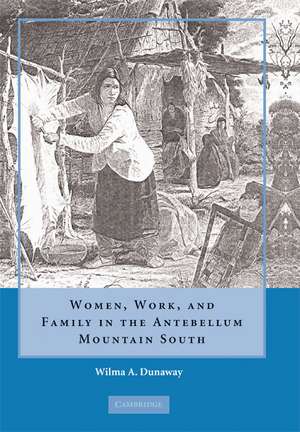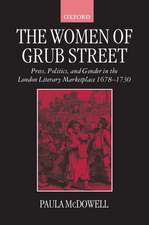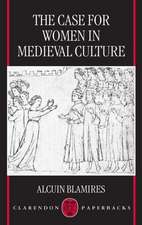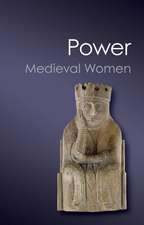Women, Work and Family in the Antebellum Mountain South
Autor Wilma A. Dunawayen Limba Engleză Hardback – 9 mar 2008
Preț: 682.71 lei
Preț vechi: 767.09 lei
-11% Nou
Puncte Express: 1024
Preț estimativ în valută:
130.70€ • 136.05$ • 107.60£
130.70€ • 136.05$ • 107.60£
Carte tipărită la comandă
Livrare economică 31 ianuarie-14 februarie 25
Preluare comenzi: 021 569.72.76
Specificații
ISBN-13: 9780521886192
ISBN-10: 0521886198
Pagini: 320
Ilustrații: 10 tables
Dimensiuni: 161 x 241 x 21 mm
Greutate: 0.59 kg
Editura: Cambridge University Press
Colecția Cambridge University Press
Locul publicării:New York, United States
ISBN-10: 0521886198
Pagini: 320
Ilustrații: 10 tables
Dimensiuni: 161 x 241 x 21 mm
Greutate: 0.59 kg
Editura: Cambridge University Press
Colecția Cambridge University Press
Locul publicării:New York, United States
Cuprins
Introduction; Part I. Racial, Ethnic, and Class Disjunctures among Appalachian Women: 1. No gendered sisterhood: ethnic and religious conflict among Euro-American women; 2. Not a shared patriarchal space: imperialism, racism, and cultural persistence of indigenous Appalachian women; 3. Not a shared sisterhood of subordination: racism, slavery, and resistance by black Appalachian females; 4. Not even sisters among their own kind: the centrality of class divisions among Appalachian women; Part II. Structural and Social Contradictions between Women's Productive and Reproductive Labors: 5. The myth of male farming and women's agricultural labor; 6. The myth of separate spheres and women's non-agricultural labor; 7. Family as privilege: public regulation of non-patriarchal households; 8. Motherhood as privilege: patriarchal intervention into women's reproductive labors.
Recenzii
“Expanding on her path-breaking studies of the antebellum Appalachian South, this newest book by Wilma A. Dunaway examines the varying work and family patterns of the region' poor whites, Native American, and black women. aboton extensive research in numerous primary and secondary sources, her analysis of the factors leading to these patterns of behavior provides considerable new and important information about the people in a location which has not previously been studied in such detail, but also makes for quite interesting comparisons with those in other areas of the South.” -Stanley L. Engerman, University of Rochester
“In this lucid and informative contribution to the histories of the Antebellum Mountain South, Dunaway opens a window on the everyday and ongoing practices of women’s lives among poor, racially and ethnically diverse peoples of Appalachia. Focused and detailed in the idiom of historical capitalism, Dunaway offers a conceptually robust account that unsettles the “separate spheres” and 'cult of domesticity' assumed to characterize gender relations in the period 1700-1860. In her account, she reveals the complex and diverse expressions of patriarchy–at once a luxury offered by familial protection among middle class families, and an encumbrance fostered by the public regulation and slaveholder disruption of poor female headed households. Dunaway leaves no one safe behind the excuse that they didn’t know about women’s centrality to family reproduction, livelihood strategies, and market participation. A must read for anyone seeking to understand the synergies among laboring relations and capacities, family formations, and women as agents of their lives and of southern history.” -Shelley Feldman, Cornell University and Binghamton University
“Wilma Dunaway presents a path-breaking theoretically and empirically grounded analysis of the diversity among women in the antebellum Mountain South that challenges the patriarchal, racist, and classist mythology and ideology found in scholarship and popular culture. She centers this powerful and compelling book around women, work and family, illuminating the racial and ethnic cleavages, and class contradictions among these women, and making visible working class women, including those of European, Indigenous, and African descent. Dunaway meticulously documents the deep difference and division in the daily experiences of women – in their work and family lives and struggles, and of the complexity and richness of the Southern and especially Appalachian reality in U.S. history. This work is a critically important contribution to feminist and gender/race/class analysis, and to American and Southern studies in the context of global capitalism and imperialism.” -Walda Katz-Fishman, Howard University
"One by one, as her books appear, Wilma Dunaway breaks new ground. Women, Work, and Family in the Anbellum Mountain South is empirically rich, as one has come to expect from Dunaway. But here the wealth of data, the care of scholarship, and the challenge to traditional thinking are so meticulously combined as to put the reader in the challenging, almost awkward, position of having to rethink all that was known, or thought to have been known, about women in the antebellum South. This book ranks with Drew Gilpin Faust's Mothers of Invention." --Charles Lemert, The John C. Andrus Professor of Sociology, Wesleyan University.
"Dunaway investigates the multi-ethnic majority of females who resided between 1700 and 1860 in the Appalachian Mountains from West Virginia south to Alabama and Virginia and the Carolinas east to Kentucky and Tennessee." -Reference & Research Book News
"Recommended." -Choice
"...a well-crafted study that will no doubt offer a starting point for many other scholars who wish to consider issues of gender within a specific region, especially the antebellum South." -Deborah L. Bauer, H-Women
“In this lucid and informative contribution to the histories of the Antebellum Mountain South, Dunaway opens a window on the everyday and ongoing practices of women’s lives among poor, racially and ethnically diverse peoples of Appalachia. Focused and detailed in the idiom of historical capitalism, Dunaway offers a conceptually robust account that unsettles the “separate spheres” and 'cult of domesticity' assumed to characterize gender relations in the period 1700-1860. In her account, she reveals the complex and diverse expressions of patriarchy–at once a luxury offered by familial protection among middle class families, and an encumbrance fostered by the public regulation and slaveholder disruption of poor female headed households. Dunaway leaves no one safe behind the excuse that they didn’t know about women’s centrality to family reproduction, livelihood strategies, and market participation. A must read for anyone seeking to understand the synergies among laboring relations and capacities, family formations, and women as agents of their lives and of southern history.” -Shelley Feldman, Cornell University and Binghamton University
“Wilma Dunaway presents a path-breaking theoretically and empirically grounded analysis of the diversity among women in the antebellum Mountain South that challenges the patriarchal, racist, and classist mythology and ideology found in scholarship and popular culture. She centers this powerful and compelling book around women, work and family, illuminating the racial and ethnic cleavages, and class contradictions among these women, and making visible working class women, including those of European, Indigenous, and African descent. Dunaway meticulously documents the deep difference and division in the daily experiences of women – in their work and family lives and struggles, and of the complexity and richness of the Southern and especially Appalachian reality in U.S. history. This work is a critically important contribution to feminist and gender/race/class analysis, and to American and Southern studies in the context of global capitalism and imperialism.” -Walda Katz-Fishman, Howard University
"One by one, as her books appear, Wilma Dunaway breaks new ground. Women, Work, and Family in the Anbellum Mountain South is empirically rich, as one has come to expect from Dunaway. But here the wealth of data, the care of scholarship, and the challenge to traditional thinking are so meticulously combined as to put the reader in the challenging, almost awkward, position of having to rethink all that was known, or thought to have been known, about women in the antebellum South. This book ranks with Drew Gilpin Faust's Mothers of Invention." --Charles Lemert, The John C. Andrus Professor of Sociology, Wesleyan University.
"Dunaway investigates the multi-ethnic majority of females who resided between 1700 and 1860 in the Appalachian Mountains from West Virginia south to Alabama and Virginia and the Carolinas east to Kentucky and Tennessee." -Reference & Research Book News
"Recommended." -Choice
"...a well-crafted study that will no doubt offer a starting point for many other scholars who wish to consider issues of gender within a specific region, especially the antebellum South." -Deborah L. Bauer, H-Women
Notă biografică
Descriere
The nature of female labor in the antebellum Appalachian South was shaped by race, ethnicity, and/or class positions.



















